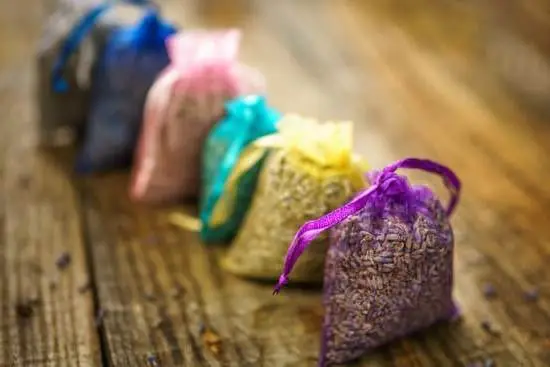In recent years, the use of aromatherapy essential oils in skincare has gained significant popularity. People are increasingly turning to these natural oils to enhance their beauty routines and address various skin concerns. But what exactly are aromatherapy essential oils, and what benefits do they offer for the skin? In this article, we will delve into the world of essential oils and explore whether they can be used on the skin.
Aromatherapy essential oils are highly concentrated plant extracts that are widely used in the field of alternative medicine. These oils are derived from different parts of plants through processes such as steam distillation or cold-press extraction. With their enchanting scents and reputed therapeutic properties, aromatherapy essential oils have become a staple in many beauty regimens.
The surge in interest towards these oils is mainly due to their potential benefits for the skin. Advocates claim that certain essential oils possess anti-inflammatory, antimicrobial, and antioxidant properties that can improve various skin conditions. Additionally, these natural alternatives can often be more affordable and have fewer side effects compared to conventional skincare products.
However, it is important to understand how to safely use essential oils on the skin and decipher which ones are suitable for specific skin concerns. Let’s explore further into the fascinating world of aromatherapy essential oils and their potential applications in skincare routines.
Understanding Aromatherapy Essential Oils
Aromatherapy essential oils have gained tremendous popularity in recent years, particularly in the realm of skincare. Many people are turning to these powerful botanical extracts to enhance their skincare routines and address specific skin concerns. In this section, we will provide a brief overview of aromatherapy essential oils, including their extraction methods and the unique properties they possess.
What are Aromatherapy Essential Oils?
Aromatherapy essential oils are concentrated plant extracts that capture the fragrance and essence of various plants, flowers, fruits, and herbs. These oils are typically extracted through processes such as steam distillation or cold pressing. The result is a highly concentrated oil that contains the volatile compounds responsible for the aromatic scent and therapeutic properties associated with different plants.
A Wide Range of Essential Oils
There is a vast array of essential oils available, each with its own unique properties and benefits for the skin. Some popular examples include lavender, tea tree, rosemary, lemon, and peppermint. Lavender oil is known for its soothing properties and can help calm irritated skin.
Tea tree oil has antibacterial properties that make it effective in treating acne-prone skin. Rosemary oil is believed to promote circulation and improve skin elasticity. Lemon oil is often used to brighten dull skin, while peppermint oil provides a cooling effect on the skin.
It’s important to note that essential oils should always be used with caution as they are highly concentrated substances. They should be properly diluted before applying them to your skin to prevent adverse reactions or sensitivities. Additionally, if you have sensitive skin or any existing skin conditions such as eczema or psoriasis, it’s advisable to consult with a dermatologist before incorporating essential oils into your skincare routine.
Decoding the Purity and Quality of Essential Oils
Introduction: The Importance of Purity and Quality in Essential Oils
Aromatherapy essential oils have gained significant popularity in recent years, becoming a staple in many skincare routines. As interest in these oils continues to grow, it is essential to understand the importance of using pure and high-quality essential oils on the skin. In this section, we will delve into the significance of purity and quality when it comes to essential oils, as well as methods for determining their authenticity.
The Importance of Using Pure and High-Quality Essential Oils
When incorporating essential oils into our skincare routine, ensuring that they are pure and of high quality is crucial. Pure essential oils contain no additives or synthetic chemicals, which guarantees their effectiveness and safety when applied topically. High-quality oils retain their natural phytochemical composition, allowing them to provide the desired therapeutic benefits for the skin.
Determining the Purity and Quality of Essential Oils
There are several methods you can use to assess the purity and quality of aromatherapy essential oils before using them on your skin. First, look for organic certifications from reputable organizations like USDA Organic or Ecocert. These certifications ensure that the plants used to extract essential oils were grown without pesticides or other harmful chemicals.
Next, consider the sourcing practices of the brand or supplier. Ethical companies often prioritize sustainable farming methods and maintain transparency about their production processes. Researching a brand’s reputation within the industry can provide valuable insights into their commitment to producing high-quality essential oils.
Additionally, pay attention to information provided by third-party testing laboratories. These laboratories analyze essential oil samples for purity, contaminants, and potency levels. Certificates of analysis (COAs) issued by these labs can give you confidence in the authenticity and quality of your chosen essential oil products.
By prioritizing purity and quality when selecting aromatherapy essential oils for skincare purposes, you can ensure that you are receiving all the possible benefits without exposing your skin to unnecessary risks. In the next section, we will discuss whether essential oils can be used directly on the skin or if dilution is necessary for their safe application.
Sub-section: The Role of Organic Certifications
Organic certifications act as a seal of approval for essential oils, guaranteeing that they have been produced in accordance with strict standards. Look for certifications such as USDA Organic, which ensure that the plants used to extract essential oils were grown without synthetic pesticides, fertilizers, or genetically modified organisms (GMOs). These organic farming practices contribute to the purity and quality of the resulting essential oil.
Ecocert is another reputable organic certification organization that verifies compliance with organic and fair trade standards. Essential oils carrying an Ecocert certification signify that they have been sustainably harvested, ensuring protection of biodiversity and respect for local communities involved in their production.
When purchasing essential oils with organic certifications, pay attention to the specific labeling requirements established by these organizations. Look for labels indicating the percentage of certified organic ingredients contained within the product. This transparency helps consumers make informed decisions about what they are applying to their skin.
Sub-section: Sourcing Practices Matter
The sourcing practices of a brand or supplier can greatly impact the overall purity and quality of essential oils. Responsibly sourcing essential oil ingredients involves sustainable farming methods that prioritize environmental conservation and ethical treatment of workers involved in production.
Look for brands or suppliers that support fair trade practices when sourcing their raw materials. Fair trade ensures fair wages, safe working conditions, and community development initiatives for farmers and workers involved in cultivation and harvesting processes.
Transparency regarding sourcing practices is also crucial. Brands should be able to provide detailed information on where they source their plant materials, including specific regions or countries. A brand’s commitment to traceability demonstrates their dedication to using high-quality ingredients while minimizing negative impacts on local communities and environments.
By understanding the significance of organic certifications and sourcing practices, consumers can make more informed decisions about the purity and quality of essential oils they choose for their skincare routine. In the next section, we will explore whether essential oils can be used directly on the skin or require dilution for safe usage.
Safety Guidelines
When it comes to using essential oils on the skin, it is important to exercise caution and follow proper safety guidelines. While some essential oils can be used directly on the skin, many require dilution to prevent irritation or adverse reactions. Here are some general safety guidelines and best practices to consider when using essential oils topically:
- Dilution: In most cases, it is recommended to dilute essential oils before applying them to the skin. This helps minimize the risk of skin sensitization or reactions, especially for those with sensitive skin. A common rule of thumb is to use a carrier oil such as jojoba, coconut, or almond oil and mix a few drops of essential oil into it before application.
- Patch Test: Before applying any essential oil blend or product onto a larger area of your skin, it is advisable to perform a patch test first. Apply a small amount of diluted essential oil onto a small area of skin, such as the inner forearm, and wait 24 hours to check for any negative reactions like redness, itching, or swelling.
- Avoid Sensitive Areas: Some areas of the body are more sensitive than others and may react differently to essential oils. It is recommended to avoid applying undiluted essential oils on mucous membranes, around the eyes or inside the ears, as they can cause irritation or discomfort.
- Sun Exposure: Certain citrus-based essential oils like bergamot or lemon have photosensitizing properties that can increase sensitivity to sunlight and potentially cause burns or pigmentation when exposed to UV rays. It is important to avoid sun exposure for at least 12 hours after using these types of oils topically.
- Deep Penetration: Keep in mind that some essential oils have smaller molecular sizes that allow them to penetrate deeper into the skin layers. As a result, they may reach the bloodstream more easily. If you have any underlying medical conditions or are taking medications, consult with a healthcare professional before using essential oils directly on your skin.
By following these safety guidelines, you can minimize the risk of adverse reactions and enjoy the benefits of aromatherapy essential oils in your skincare routine.
Essential Oils for Skin Types
When it comes to skincare, addressing specific skin concerns is a top priority for many people. Thankfully, aromatherapy essential oils offer a natural solution that can be tailored to different skin types and concerns. By incorporating the right essential oils into your skincare routine, you can address your specific skin issues and achieve healthier, more radiant skin.
For those with oily and acne-prone skin, tea tree oil is an excellent choice. Known for its powerful antibacterial properties, tea tree oil helps to cleanse and purify the skin while reducing inflammation and preventing breakouts. Lavender oil, on the other hand, is perfect for those with dry or sensitive skin. Its soothing properties help to hydrate and calm the skin while promoting a healthy complexion.
If you have mature or aging skin, rosehip seed oil is a fantastic option. Packed with antioxidants and vitamins A and C, this oil promotes cell regeneration and improves the overall texture of the skin. Argan oil is another popular choice for mature skin due to its high levels of fatty acids and vitamin E, which help to moisturize and reduce the appearance of fine lines and wrinkles.
For individuals with combination skin, geranium oil is an ideal choice. It helps to balance both oily and dry areas of the face while tightening pores and promoting a more even complexion. Additionally, chamomile oil is great for those with sensitive or irritated skin as it has calming properties that soothe redness and inflammation.
It’s important to note that everyone’s skin is unique, so finding the right essential oils for your specific concerns may require some experimentation. It’s also crucial to properly dilute essential oils before using them on your skin to avoid any adverse reactions or irritation. You can mix a few drops of your chosen essential oil with a carrier oil like jojoba or sweet almond oil before applying it topically.
By understanding which essential oils are best suited for your individual needs, you can address specific skin concerns and achieve healthier, more radiant skin naturally. Remember to patch test any new oils or blends before applying them to your entire face, and always consult with a skincare professional if you have any concerns or questions about using essential oils on your skin.
DIY Skincare Recipes
Aromatherapy essential oils not only offer a natural and holistic approach to skincare but also provide an opportunity for individuals to customize their beauty routine. By incorporating essential oils into your skincare routine, you can create personalized products that cater to your unique skin type and address specific concerns. Here are some easy-to-follow DIY skincare recipes that harness the power of aromatherapy essential oils.
For those with oily skin, a homemade cleanser can help remove excess oil without stripping the skin of its natural moisture. Combine five drops of tea tree essential oil, known for its antibacterial properties, with two tablespoons of witch hazel and one tablespoon of water. Shake well before each use and apply onto a cotton pad to cleanse the face.
If you have dry or sensitive skin, a hydrating facial mist can provide much-needed moisture throughout the day. Mix five drops of chamomile essential oil, which has soothing properties, with one tablespoon of rose water and one tablespoon of glycerin. Transfer the mixture into a spray bottle and mist onto the face whenever your skin needs a hydration boost.
To combat signs of aging and nourish mature skin, try making a rejuvenating facial mask. Blend three slices of papaya until smooth and mix in three drops of frankincense essential oil known for its anti-aging properties. Apply the mask onto clean skin and leave on for 15 minutes before rinsing off with warm water.
These are just a few examples of how you can incorporate essential oils into your daily skincare routine. Experiment with different combinations to find what works best for your skin type and concerns. Always remember to conduct a patch test before using any new product on your face to check for any potential allergies or irritations.
By incorporating aromatherapy essential oils into your skincare routine through these DIY recipes, you have the opportunity to harness nature’s healing power while creating personalized products that cater to your individual needs. Enjoy the benefits of aromatherapy and reap the rewards of healthier, more vibrant skin.
Potential Risks and Side Effects
When it comes to using essential oils on the skin, it is important to be aware of potential risks and side effects. While many essential oils offer various benefits for the skin, some individuals may experience adverse reactions or sensitivities. It is crucial to use caution and be mindful of these potential risks when incorporating aromatherapy essential oils into your skincare routine.
One of the main risks associated with using essential oils on the skin is skin irritation or sensitivity. Certain essential oils, such as citrus oils like lemon or grapefruit, may cause redness, itchiness, or a burning sensation on the skin. Patch testing is recommended before applying any new essential oil topically, especially if you have sensitive skin or a known allergy to certain substances.
In addition to skin irritation, some essential oils are known to cause photosensitivity. This means that exposure to sunlight after applying these oils can lead to an increased risk of sunburn or skin damage. Examples of photosensitive essential oils include bergamot, lime, and angelica root oil. When using these oils on the skin, it is important to avoid direct sunlight for at least 12 hours after application and use proper sun protection measures.
To help readers minimize the potential risks and side effects of using aromatherapy essential oils on their skin, here are some key tips to keep in mind:
- Always dilute essential oils: It is generally recommended to dilute essential oils in a carrier oil before applying them topically. This helps reduce their potency and minimizes the risk of irritation.
- Perform a patch test: Before using a new essential oil on your face or body, apply a small amount on your inner arm or another less sensitive area and wait 24 hours to see if any adverse reactions occur.
- Listen to your body: Pay attention to how your skin reacts when using an essential oil. If you experience any discomfort or irritation, discontinue use immediately.
- Follow usage guidelines: Each essential oil may have specific usage guidelines and recommended dilution ratios. Always refer to reputable sources or consult with a certified aromatherapist for accurate information.
By being cautious and informed about potential risks, individuals can safely enjoy the benefits of aromatherapy essential oils on their skin. It is essential to prioritize skincare safety and adjust your routine accordingly if any adverse reactions occur.
| Risks | Prevention |
|---|---|
| Skin irritation or sensitivity | Perform a patch test before applying new essential oils topically, especially if you have sensitive skin or known allergies. |
| Photosensitivity | Avoid direct sunlight for at least 12 hours after applying photosensitive oils like bergamot or lime, and use sun protection measures. |
Expert Tips for Using Aromatherapy Essential Oils on Skin
Using aromatherapy essential oils on the skin can be a wonderful addition to your skincare routine. However, it’s important to use them properly to ensure safety and maximize their benefits. Here are some expert tips for using aromatherapy essential oils on the skin:
- Dilute Essential Oils: In most cases, it is recommended to dilute essential oils before applying them to the skin. This is especially important for individuals with sensitive skin or when using oils that are known to cause irritation. Dilution can be done by mixing a few drops of essential oil with a carrier oil, such as jojoba or sweet almond oil.
- Perform a Patch Test: Before applying any new essential oil on a larger area of your skin, perform a patch test first. Apply a small amount of diluted oil on your inner forearm and wait at least 24 hours to check for any adverse reactions or sensitivities.
- Follow Recommendations for Safe Usage: Each essential oil has its own guidelines for safe usage. Some oils may only be safe for topical use in small quantities or should not be used during pregnancy or with certain medical conditions. Always research and follow the specific recommendations provided by reputable sources or consult with a qualified aromatherapist.
- Avoid Applying Near Eyes and Mucous Membranes: Essential oils should not be applied directly near the eyes or on mucous membranes as they can cause irritation or stinging sensations. If you want to address issues around the eye area, consider using hydrosols or products specifically formulated for this delicate area.
- Choose High-Quality Essential Oils: When purchasing essential oils for skincare, opt for high-quality brands that provide information about their sourcing practices and offer third-party testing certificates if available.
- Use Sun Protection: Some essential oils, particularly citrus ones like bergamot or lemon, can increase photosensitivity in the skin, making it more prone to sunburn and hyperpigmentation. If you use such oils, be sure to apply a broad-spectrum sunscreen with a high SPF before sun exposure.
By following these expert tips, you can enjoy the benefits of aromatherapy essential oils while keeping your skin safe and healthy. Remember that everyone’s skin is different, so it’s important to listen to your body and adjust your skincare routine accordingly.
Conclusion
In conclusion, the use of aromatherapy essential oils on the skin has become increasingly popular in recent years due to their numerous benefits and claims. These oils are derived from various plants and possess unique properties that make them suitable for different skin types and concerns. However, it is important to consider both the pros and cons before incorporating essential oils into your skincare routine.
On one hand, using high-quality and pure essential oils can provide various benefits to the skin. Different oils have been found to address specific skin concerns such as oilyness, dryness, sensitivity, and signs of aging. They can be incorporated into homemade skincare recipes such as cleansers, toners, moisturizers, and masks tailored to individual needs. Additionally, expert tips and application methods can help maximize the positive effects of these oils on the skin.
On the other hand, it is crucial to exercise caution when using essential oils topically. Some oils may cause skin irritation or photosensitivity in certain individuals. It is important to conduct a patch test before applying essential oils directly on the skin and to be aware of any personal sensitivities or allergies. Furthermore, it is advisable to follow safety guidelines such as diluting essential oils with carrier oils or other suitable mediums.
Frequently Asked Questions
Can aromatherapy essential oils be used topically?
Aromatherapy essential oils can be used topically when properly diluted and applied with caution. It is important to note that undiluted essential oils are highly concentrated and can cause irritation or sensitization to the skin.
Therefore, it is recommended to dilute essential oils in a carrier oil, such as almond oil or coconut oil, before applying them topically. This helps to reduce the risk of adverse reactions and allows for better absorption into the skin.
Are aromatherapy oils safe for skin?
While aromatherapy oils can generally be safe for the skin, it is crucial to practice proper usage and adhere to safety guidelines. Some essential oils may cause skin irritation, redness, or allergic reactions in certain individuals.
It is always advisable to perform a patch test on a small area of skin before using any new essential oil topically, especially if you have sensitive skin or known allergies. Additionally, people with specific medical conditions or those who are using certain medications should consult with a healthcare professional before using aromatherapy oils on their skin.
What essential oils should not be used on skin?
There are several essential oils that should not be used directly on the skin due to their potential adverse effects. These include but are not limited to cinnamon bark, clove bud, oregano, lemongrass, thyme, and wintergreen oils as they can be highly irritating or sensitizing to the skin.
In some cases, these oils may cause chemical burns or severe allergic reactions when applied undiluted or in high concentrations. It is important to always read product labels and follow recommended dilution ratios when using essential oils for topical application to ensure safety and minimize risks of skin irritation or other unwanted side effects.

Are you looking for a natural way to improve your health and wellbeing?
If so, aromatherapy may be the answer for you.





